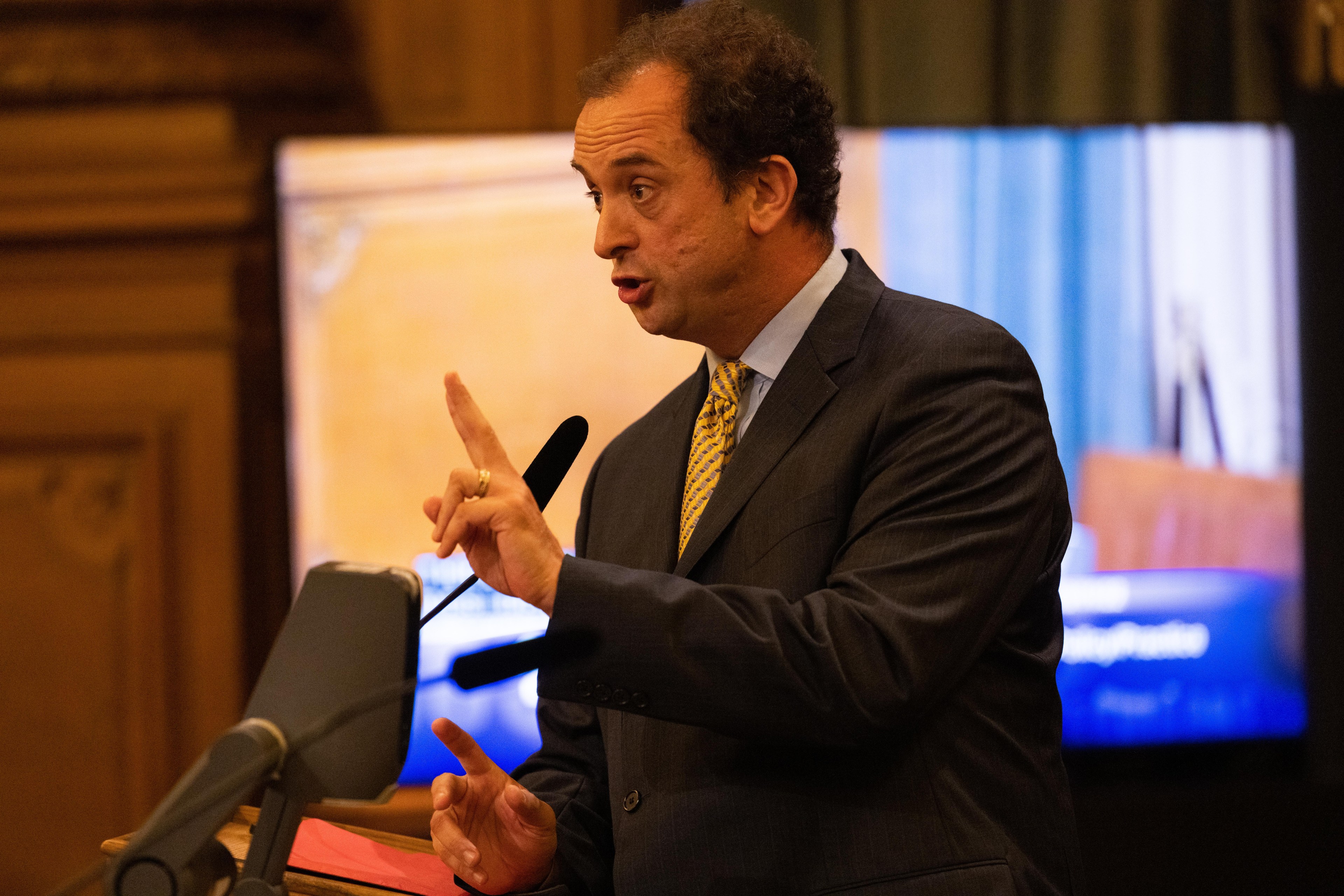City supervisors pressed Mayor London Breed’s highest-ranking staffer for answers Tuesday on why she secretly directed her appointees to sign undated resignation letters that are inconsistent with the law.
Breed’s chief of staff, Sean Elsbernd, responded tersely during a special hearing called by Supervisor Dean Preston to shed light on a practice The Standard exposed last month.
Eslbernd acknowledged that Breed decided on a case-by-case basis whether to push the letters on some of her appointees—and not others.
“The mayor clearly had a subjective standard here,” said Elsbernd. “Sometimes she directed it, sometimes she did not.”
While Elsbernd maintained that the practice was not about influencing votes, his acknowledgement raised additional concerns that Breed used the letters to influence the decisions of certain appointees who are afforded a level of independence from the mayor under the City Charter.
Preston said the lack of objectivity and transparency around the use of the letters made the practice ripe for abuse. He argued that Breed would have required all her appointees to sign the letters if she only intended to use them in extreme cases, as Elsbernd stated, such as when a commissioner abandoned their post or behaved inappropriately.
“Sometimes the obvious answer is the correct one,” Preston said during the hearing. “The obvious answer here is that these resignation letters were designed to exert control over commissioners.”
The letters first came into public view late last month when The Standard reported that a member of San Francisco’s powerful Police Commission, Max Carter-Oberstone, felt compelled to sign one as a condition of his reappointment. Carter-Oberstone also said he believed the Mayor’s Office could use the letter against him if he voted against Breed’s wishes.
In the weeks since, the Mayor’s Office has revealed that Breed asked at least 48 other appointees to sign such draft letters. They include members of other important oversight bodies such as the Planning Commission and SFMTA Board of Directors who, like police commissioners, are protected from the mayor unilaterally removing them from office under the City Charter.
The City Attorney’s Office determined that the practice was “inconsistent” with the City Charter and could threaten the independence of appointees, and Breed pledged to end the practice and cancel any outstanding letters.
Preston called for the hearing at the Government Audit and Oversight Committee Tuesday to drill down on the extent of the practice. He is also drafting legislation to explicitly prohibit the practice in the future.
The hearing came less than a week after Breed addressed the resignation letters directly during a live interview with KQED. On one hand, the mayor said the letters were not about controlling votes. She said they were about making sure commissioners did not abandon their duties. On the other, Breed said she did want to have a level of control over her appointees to effectively manage the city.
“Commissioners aren’t even elected,” Breed said. “The buck stops with me.”
At the hearing, Eslbernd said the idea for using the undated resignation letters came about during discussions inside the Mayor’s Office around the time Breed became mayor over four years ago.
Asked whether anyone pushed back over the practice, he said only that there were “robust discussions” about the letters.
“Many opinions were shared,” he added.
Citing attorney-client privilege, Eslbernd declined to say what advice, if any, the City Attorney’s Office gave Breed’s office on the legality of the practice.
He said the mayor has not requested any undated letters from her appointees to the Board of Supervisors or Board of Education, nor did she ask appointed District Attorney Brooke Jenkins to sign one.
He also acknowledged that the letters were designed to circumvent the process for removing certain commissioners for “official misconduct,” which can take months and requires the consent of the Ethics Commission and Board of Supervisors to remove an appointee.
Carter-Oberstone, who also spoke at the hearing, conceded that the Mayor’s Office never directly threatened him with the letter he signed.
“There was never a moment where somebody pulled my resignation letter out of a drawer and waved it in front of me and said, ‘Hey, if you don’t listen, we are going to sign this,’” Carter-Oberstone said. “That never happened.”
But he said the office didn’t have to: The letters impacted him anyway.
“That’s not how these things work,” he said. “The fact that everybody knows that this resignation letter is just floating in the ether, that it can be accepted at any moment […] is a consideration that is at the forefront of at least my mind when I’m receiving direction from the Mayor’s Office.”
Preston was joined at the hearing by supervisors Connie Chan and Hillary Ronen, who each condemned the practice.
“It’s problematic, it’s disturbing and it really throws into question not only the legitimacy but the entire point of having these commissions in the first place,” Ronen said. “I hope we all learned something from this.”
